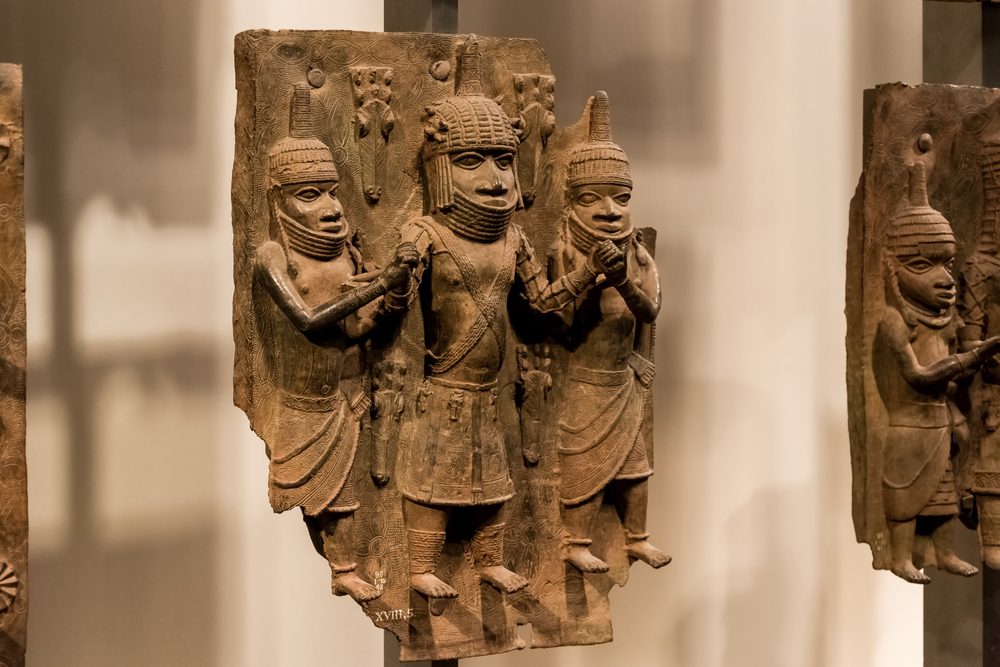
In an attempt to “right a wrong” from Germany’s “dark colonial past,” German Foreign Minister Annalena Baerbock (Greens) has returned 20 of the so-called Benin Bronzes to Nigeria as part of a program of colonial reparations. While liberal media applauded the move as a long overdue acknowledgment of the harm inflicted by European colonialism, conservative critics pointed out that Nigeria was never a German colony.
“Today, we are here to return the Benin Bronzes to where they belong, to the people of Nigeria,” said Baerbock during the official handover ceremony in Nigeria. Baerbock was joined by Minister of Culture and Green party colleague Claudia Roth, who referred to the event as a “historic day” before stressing that “we want to return what never belonged to us.”
Heute gehen wir einen Schritt, der längst überfällig war: Wir bringen zwanzig #BeninBronzen zurück in ihre Heimat #Nigeria. Das wird nicht alle Wunden der Vergangenheit heilen. Aber wir zeigen, dass wir es ernst meinen mit der Aufarbeitung unserer dunklen Kolonialgeschichte.
— Außenministerin Annalena Baerbock (@ABaerbock) December 18, 2022
Alhaji Lai Mohammed, Nigeria’s minister of information and culture, was elated during the ceremony. “Twenty years ago, even 10 years ago, nobody could have anticipated these bronzes returning to Nigeria, because the obstacles to achieving repatriation were seemingly insurmountable,” he said. “But today, with the pioneering gesture of a friendly nation, Germany, the story has changed.”
The Benin Bronzes are a collection of brass plaques and sculptures that were created in the Kingdom of Benin, now modern-day Nigeria, in the 16th and 17th centuries. They were taken by British forces during the Benin Expedition of 1897 and have been housed in museums across Europe ever since. The Bronzes are considered some of the finest examples of African art and are highly prized by collectors and museums around the world.
Critics of the repatriation argue that the Bronzes were bought legitimately by German collectors in the 19th century and that Nigeria was never a German colony. This has been acknowledged by Godwin Obaseki, the governor of Edo state, who noted during a reception that “Germany was not the country that burned down our kingdom, Germany was only a commercial beneficiary.” Yet the Guardian quotes an official as pointing to the fact that this is “a rare position for German diplomats to find themselves in given the country’s 20th-century history of aggression.”
There are also concerns that returning the Bronzes could set a dangerous precedent for other European countries, who may be forced to return valuable cultural artifacts that have been in their possession for centuries. Britain has been singled out repeatedly, also during the latest handover. “Britain has most of the works, and we thought they would provide leadership,” said Obaseki, adding that “they were the ones who came here and destroyed the empire, they were the ones who looted pieces from here, and they should be leading in restitution.”
In November, it was announced that the Horniman Museum in London would be returning 72 items, including Benin Bronzes, to Nigeria. On December 14th, the BBC reported on the plans of the University of Cambridge to return 116 artifacts from its collection to Nigeria.
The Kingdom of Benin existed from the 11th century AD until its annexation by the British in 1897. The kingdom entertained trade relations with European nations since the 15th century, dealing mostly in tropical fruits and slaves. Benin also knew human sacrifices as part of its religious customs; the annual ritual sacrifice of several people in order to attract European trade has been documented as late as the 18th century.
